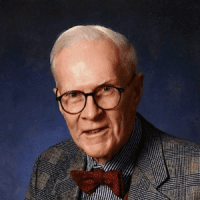The last of the three divisional committees of the Association to hold its fall meeting was that of the Professional Division. It convened on November 18 to consider a heavy agenda that required a number of significant decisions to be taken. Our members will find all of them of interest.
The division first considered a number of cases involving charges of plagiarism or other violations of the Association’s standards of professional conduct, which had been referred to it. In the most voluminous case, involving a manuscript which had been circulated to a publisher, the Professional Division Committee, after consulting a specialist, found that the content of the manuscript was such that if published it would, in the division’s opinion, certainly constitute an act of deliberate plagiarism, and it so informed the owner of the manuscript. In a second case, the division did not find any evidence of plagiarism or intent to plagiarize the work of another scholar who had complained. In a third case involving not plagiarism but an editor’s reversal of a commitment to publish a communication, the division found that it lacked authority to proceed, beyond writing to the editor in question. Under the Division’s procedures, names and identities are protected unless the division is called on to give evidence in legal proceedings.
Following up on these cases, the committee decided that it would publish an annual reminder in Perspectives of the AHA Standards of Professional Conduct, would circulate them regularly to departments of history, offer reprint rights to affiliated organizations, and prepare a small pamphlet containing the standards.
A further major topic for the Professional Division was the operation of the Job Register at the Cincinnati annual meeting. Patrons, both job hunters and head hunters, who used the Job Register there December 27–30, may have noticed several earnest Professional Division Committee members serving as volunteer staff at the Register at various times. Certain changes in procedure planned by the staff were approved, in the hope that the ever-larger Register clientele can be made beneficiaries of greater efficiency and lesser trauma. The Job Register’s problems in the recent past have been those of too rapid growth; the number of interviewing institutions in Cincinnati exceeded 90, more than double the number of three years earlier. The increasing volume of the job openings augurs continued growth of this service facility in San Francisco in 1989 and in New York in 1990.
On the subject of search-and-hire procedures, the committee also discussed the prevalent practice of larger institutions using a hotel suite rather than the Job Register for interviewing. The Association obviously can take no responsibility for such off-site procedures, but the Committee decided nevertheless to remind departments of the importance of correct, systematic, and polite conduct and it’s strong aversion to the use of bedrooms rather than suites for interviews.
The committee also decided to take up at its spring meeting the wording of the guidelines for the use of Perspectives employment information advertising columns to ensure their conformity both in wording and content with the standards of professional conduct adopted by the AHA. It then turned to the troubling question of unadvertised searches, which do exist and are likely to continue to exist despite official opposition. The division decided not to take a totally prohibitive stance, noting that short-fuse appointments and sudden targets-of-opportunity hirings are often the reason for the practice, but reaffirmed its position that under normal conditions an open search is a must.
On November 17 the Association’s Committee on Committees held its annual telephone conference, chaired by President-Elect Louis Harlan, to fill nearly fifty vacancies coming open the end of December 1988 in the AHA’s prize, standing, and ad hoc committees and delegations structure. The slate presented to the Council, December 27, contains the names of fifty-one men, and twenty-nine women historians, including alternates, with a number of public historians and faculty from other than graduate departments.
Just before Thanksgiving, the Research Division Committee also held a conference call to prepare its list of recommendations for the ACLS concerning travel grant requests for the second half of 1989.
In mid-November, in preparation for the fall meeting of the Joint Committee of Historians and Archivists, in which the AHA, the OAH, and the Society of American Archivists collaborate, Dr. Page Putnam Miller as an ex officio Joint Committee member and the executive director had a useful meeting with Dr. Don Wilson, the Archivist of the United States, to express concern that the speed with which the National Archives was moving toward its long-awaited new building was in danger of barring Archives-using historians from effective imput on its design.
At its meeting a few days later, the Joint Committee continued this discussion with Archives staff, who conveyed Dr. Wilson’s decision to appoint an advisory group of users to consult with the designers of the new facility. The Archivist will appoint this group from a pool of nominees provided by the AHA and other concerned organizations. Other agenda items included discussion of new NHPRC programs, of the current state of corporate archives, and of a study by Page Putnam Miller on reference and personnel policies at the National Archives.
Just after this issue of Perspectives was put to bed, members of the Council’s Finance Committee travelled to New York for its annual session with the Association’s trustees. Notwithstanding the presence in Manhattan of another traveller, Mikhail Gorbachev, and forecasts of terminal Mahattan gridlock, the meeting was held and proved to be helpful to both Council representatives and trustees in clarifying the Association’s hopes and expectations for its modest portfolio of investments. The AHA has long followed a policy of allowing its expert trustees to seek growth for its investments, in order to protect future generations of members, accepting the lessened earnings that results. Since we do not reinvest earnings from the general endowment, we must rely on growth to stay ahead of inflation’s effects on our endowment.

